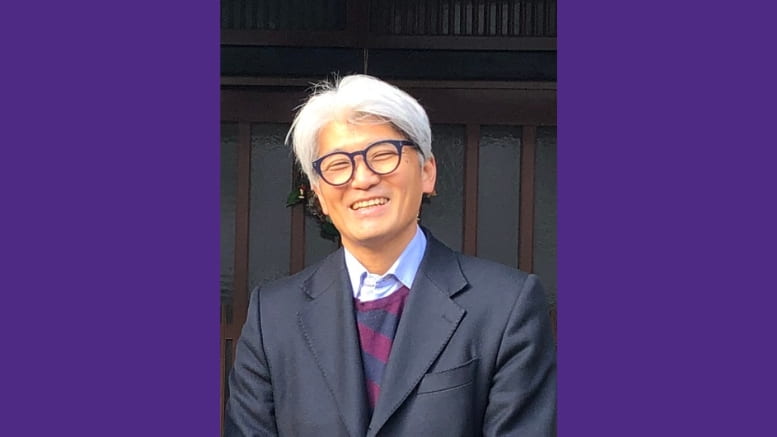Hirokazu Miyazaki to lead study to examine city-level actions and assess if their grassroots efforts influence national nuclear policy
October 31, 2023

Northwestern University has been awarded $475,000 from the Carnegie Corporation of New York for a study of the role of cities in the politics of nuclear weapons. Hirokazu Miyazaki, Kay Davis Professor and professor of anthropology, is the Principal Investigator for the study. With the grant, over the course of two years, Miyazaki and his research team will document and critically examine city-level actions and conversations about nuclear weapons to assess the plausibility of these cities’ grassroots efforts to influence national nuclear policy.
“Cities are presumed targets of nuclear attack, and city leaders and residents have long been engaged in efforts to promote nuclear disarmament,” explained Miyazaki. “More than 70 U.S. municipalities, including Chicago, Evanston, and Skokie, have recently passed resolutions calling on the federal government to take the lead on nuclear disarmament and support the United Nations Treaty on the Prohibition of Nuclear Weapons.”
Miyazaki describes that for a long time, a small group of security experts has dominated the national discussion on nuclear security. This has focused the conversation around strategic security concerns, such as nuclear deterrence and nonproliferation, and associated technical issues. In contrast, the Treaty on the Prohibition of Nuclear Weapons (TPNW), which entered into effect in January 2021, has initiated a shift in the discussion by highlighting the economic, environmental, and health consequences of the development, maintenance, waste management, and potential use of nuclear weapons.
“Nuclear weapons continue to pose economic, environmental, and existential risks to humanity. Despite our ostensible shared commitment to nuclear disarmament, the nuclear arms race is accelerating, and the threat of nuclear war is increasingly real,” said Miyazaki.
“Better understanding the role of city diplomacy in nuclear policy can broaden the national policy debate to incorporate economic, environmental, and other bases of security; historically marginalized and underrepresented perspectives; and associated forms of expertise and deep transnational connections found at the local level,” explained Miyazaki.
In conjunction with this two-year project, Miyazaki will offer an anthropology course entitled “Cities and Nuclear Weapons.” The course will introduce students to the basics of nuclear weapons, theories of nuclear deterrence, and instruments of nuclear arms control, as well as the evolution of ideas, tactics, and coalition-building strategies in anti-nuclear activism, particularly from the nuclear freeze movement of the 1980s to the ongoing global campaign to abolish nuclear weapons.
Miyazaki has published widely on theories of exchange, hope, and peace based on his studies of indigenous Fijian land claims, Japanese financial derivatives trading, and trans-Pacific peace activism. Miyazaki’s publications include The Method of Hope: Anthropology, Philosophy, and Fijian Knowledge (2004), Arbitraging Japan: Dreams of Capitalism at the End of Finance (2013), The Economy of Hope (2017), and Nuclear Compensation: Lessons from Fukushima (2021). Miyazaki has also served as a Peace Correspondent for the City of Nagasaki since 2018 and has organized numerous educational events on nuclear weapons.

Society & Policy

Joel Mokyr wins Nobel Prize in Economic Sciences
October 13, 2025
Nobel recognizes Mokyr’s theory on sustained economic growth Joel Mokyr, the Robert H. Strotz Professor of Arts and Sciences and professor of economics and history in the Weinberg College of Arts and Sciences at Northwestern University, today (Oct….

Weinberg College faculty and graduate students recognized for excellence in teaching
July 2, 2025
Each year, the Weinberg College of Arts and Sciences and the Office of the Provost recognizes members of the College’s tenure-line and teaching-track faculty for excellence in teaching. Weinberg College in addition recognizes the contributions…

Passion for the planet: A new generation of environmental stewards starts here
May 29, 2025
Over the last two decades, the Weinberg College-housed Program in Environmental Policy and Culture (EPC) at Northwestern has embraced the humanities and social sciences and cultivated a new generation of environmental stewards. Growing up in…

The real beneficiaries of protective labor laws for women
May 20, 2025
During the first half of the 20th century, many states passed labor laws in response to the influx of women into the modern workplace. The so-called protective labor laws enacted by U.S. states restricted women’s…



